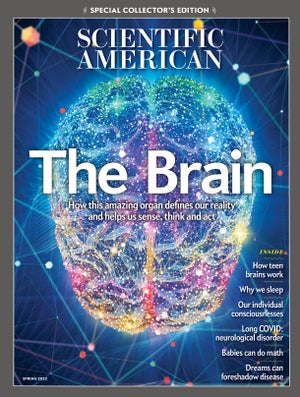How do I tell the difference?
When you hold a print item, it's fairly easy to determine the type of source it is because you can flip through the pages and find information about the publisher. But what about when you're viewing information on a website or in a database -- how do you tell which type of source it is?
Below is an example of the same magazine article being accessed three different ways: in print, online, and in a database.
Use the tabs on the left or the links below to view tips & examples for identifying:
Example: Magazine
We have several popular periodicals in print, but the majority of our articles are only accessible online. Physical copies of select periodicals can be found in the library. Ask the library staff for their location at your campus library.


Website
Let's say you're working on a research project about improving your memory while studying and want to do some background research. You search Google and find a link from www.discovermagazine.com/ about your topic -- only to find there's a paywall to access the article.
While most periodicals have a website, not all the content on that website is free. Periodicals make money through subscriptions and advertising so they're not going to give away all of their content.
You still want to see the article because it looks like a good potential source, but you don't have to pay the publisher for access. Simply take the title of the article and search for it in FRCC-LC Discovery Search. You'll have the option (depending on the library's subscriptions) to view the article in full text or request the article via InterLibrary Loan. Note: sometimes the headlines change for the online version from the print publication version. Try searching for the author and the topic in Discovery Search.
Database
You found the article in your FRCC Discovery Search results list and clicked on "Access now" to go into to view the article. In the database, you have more information about the article including citation information, subject terms, and an abstract. (Note how the article title in the database is different from the website version. To optimize being found on the open web, editors frequently change headline titles. Databases follow the print magazine article title.)
Many articles are available in PDF Full Text or HTML so you can read it instantly.
If there isn't a full text option, you can request the article via Interlibrary Loan.
You can read the article in the viewer, print it out, or download it as a PDF.



